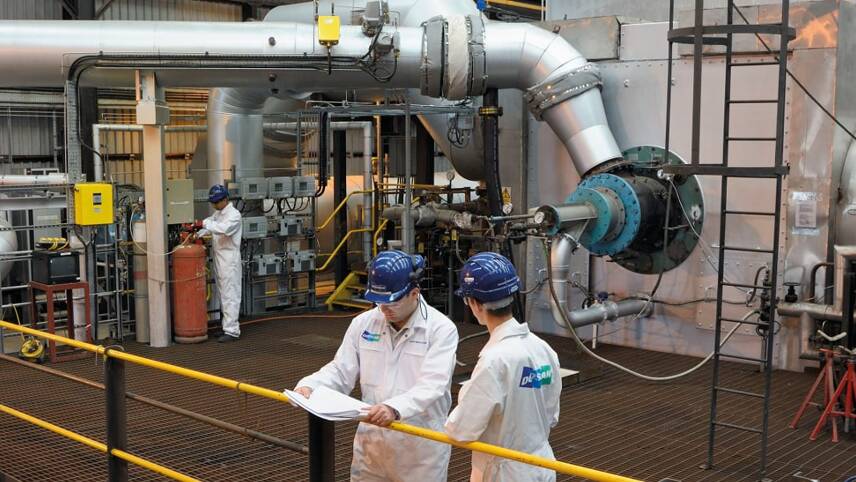Member only content free until 26/05/2024
To continue reading this article and enjoying free access to all Utility Week’s content up to the 26/05/2024 Register today!
Ready to become a member?

All new combustion power plants will have to set aside space for carbon capture technology under planning rule changes put forwards by the government.
Under existing planning rules, generating plants of 300MW or more are required to allocate space for carbon capture technology.
However, according to the Department for Energy Security and Net Zero (DESNZ) this threshold has led to “an unintended market distortion, by disincentivising the deployment of plants above 300MW [which] has been demonstrated by a number of new gas-fired plants being consented in the last few years at a size of 299MW”.
Consequently, DESNZ has proposed removing the threshold in a series of changes it is putting out to consultation.
Projects recently consented at 299MW include Open Cycle Gas Turbine applications by Abergelli Power Limited and Eggborough Power Limited, according to the latest Capacity Market Register.
The DESNZ consultation document adds: “Removing the 300MW minimum capacity threshold at which the requirements apply […] should simplify the requirements, remove a potential market distortion and support the rapid decarbonisation of the electricity system.”
It continues: “In addition, the context has changed significantly since the CCR [carbon capture readiness] requirements were introduced in 2009. Our climate targets have become more ambitious, with the goal of delivering a decarbonised power system by 2035, subject to security of supply. And a much greater proportion of new build power plants are sized below 300 MW. For example, in Capacity Market (CM) auctions since 2017, almost 80% of new-build gas-fired capacity which secured agreements was sized below 300 MW.”
The proposals are intended to apply to both refurbishing and building new combustion power plants.
The proposal to completely remove the threshold comes following feedback from an initial call for evidence. The consultation document reveals that “there was clear feedback that market distortion is a perceived issue”.
Of the 32 responses, 11 supported a reduction of the current threshold and 20 called for a complete removal.
The consultation document adds that DESNZ opted for a complete removal as “reducing the threshold […] could potentially introduce new forms of market distortion by incentivising the deployment of plants just below the new threshold, as we have already seen for the 300 MW threshold.”
Other areas the government is consulting on includes:
- Enabling combustion power plants to demonstrate decarbonisation readiness through conversion to hydrogen firing by introducing four assessments and accompanying guidance for demonstrating Hydrogen Conversion Readiness (HCR) which broadly reflect those for CCR.
- Moving the Decarbonisation Readiness (DR) requirements from the planning consent process to the environmental permitting process.
- Expanding the generation technologies in scope to include biomass (as well as biogas from anaerobic digestion), energy from waste (EfW), and combined heat and power (CHP) to support the rapid decarbonisation of the electricity system, complement existing technology-specific decarbonisation policies, and make the requirements simpler and more consistent across technology types.
- Applying transitional arrangements to the implementation of DR, to ensure that policy is not changed for plants for which investment decisions have already been.
- Including both new build and substantially refurbishing combustion power plants in scope and enabling existing combustion power plants to voluntarily apply for a DR permit.
- Updating the current tests and guidance for demonstrating CCR in line with technical and policy developments.
- Retaining the current CCR requirement for developers to undertake a light touch review of their plant’s compliance with the DR requirements every two years to ensure all regulated developers are regularly assessing their decarbonisation potential.
The consultation will run for six weeks. Following this consultation, DESNZ will issue its response and then amend the relevant legislation (the Carbon Capture Readiness Regulation 2013 and the Environmental Permitting Regulations 2016) shortly thereafter.
If approved in time, the proposals will take effect from 1 July 2024.




Please login or Register to leave a comment.